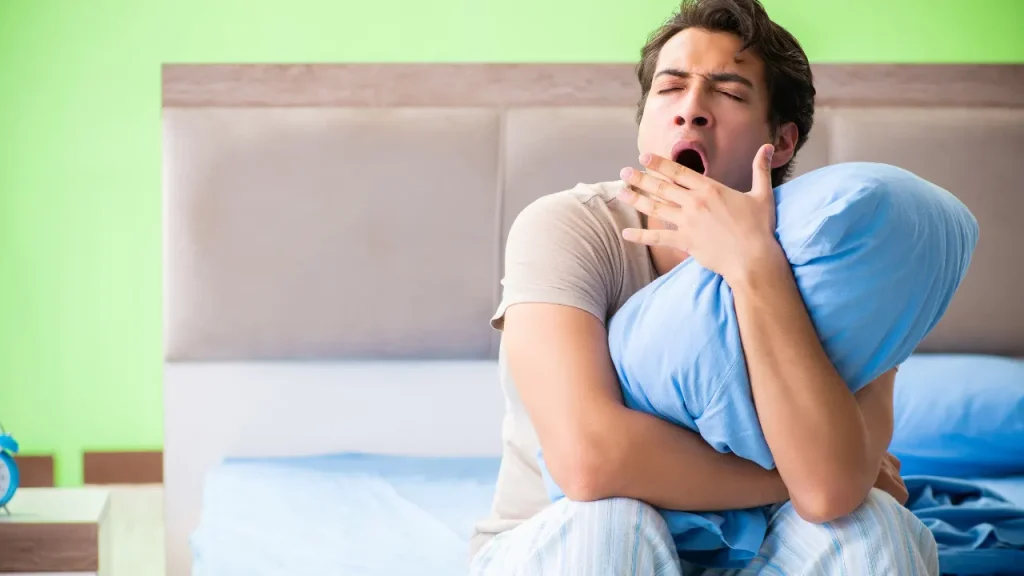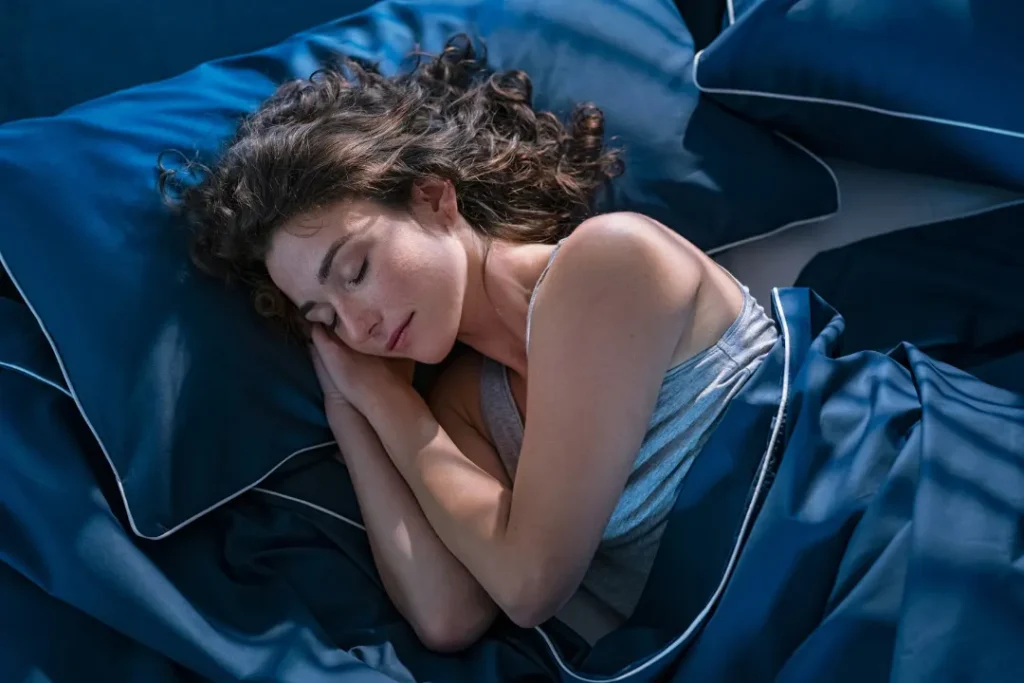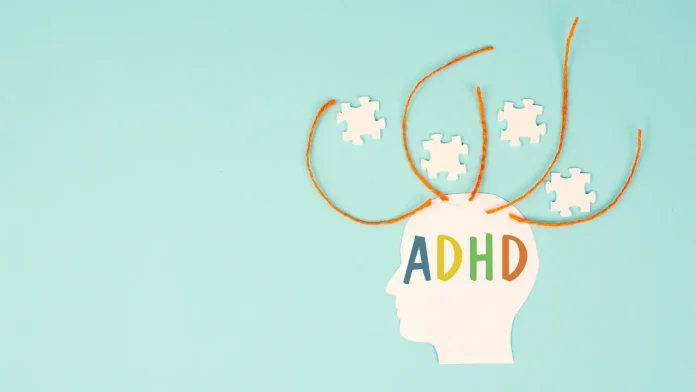Getting through the day is hard enough; for those of us with ADHD insomnia, the real struggle is often getting enough shuteye. Read on to learn about some top tips that can help you start getting the sleep you need.
Everyone’s experienced a few sleepless nights, but those diagnosed with attention-deficit/hyperactivity disorder (ADHD) often also deal with insomnia or other sleep disorders. Within the ADHD population, around 75 percent of children and adolescents and up to 80 percent of adults experience insomnia.
While doctors are unsure of why this association exists, there are some theories. Some researchers believe that because ADHD impacts a person’s arousal, alertness, and regulatory brain circuits, sleep disorders are just an unfortunate side effect. Others theorize it’s because of a delayed circadian rhythm, which then delays melatonin production.
So far, there haven’t been any consistent research findings, which makes treatment difficult. Since some ADHD symptoms are similar to sleep deprivation symptoms — like forgetfulness and difficulty concentrating — one condition could be mistaken for the other. When managing such conditions, however, the most important question isn’t why — it’s what can I do?
If you’re tired of being tired, keep reading to learn about treatments and changes you can make to help manage ADHD insomnia. It’s important to note, however, that if you’re diagnosed with both conditions and you suspect they may be related, you should talk with your doctor.
You May Also Like:
Dr. Teal’s Sleep Spray vs DELTA BrainLuxury
Restore Your Sleep and Rejuvenate Yourself: PMS Insomnia Solutions
Get the Break You Need From ADHD Insomnia: Top Tips for Better Sleep is an original (OptimalHealthNews) article.
Managing ADHD insomnia:
Lifestyle changes
Like with other sleep disorders, changing your habits and routine can be a big help in getting more rest. If you haven’t tried drinking coffee earlier in the day or avoiding screen time at night, those are two good first steps to take. Some other tips to try are to avoid doing stimulating activities close to bedtime, getting exercise during the day, getting sunlight exposure, and developing a bedtime routine.
While implementing these changes usually costs little to nothing, it’s often easier said than done. Old habits are hard to break and harder to resist, especially when tired. These tips are often the first line of defense against insomnia and other sleep disorders, and can determine whether someone’s sleepiness is chronic or just the result of a few bad nights. For more persistent sleep problems — this includes ADHD insomnia — there are other, more intensive treatments available.

Managing ADHD insomnia:
Cognitive behavioural therapy
Cognitive behavioral therapy (CBT) is a proven, effective treatment for combating insomnia as well as mental illnesses. The goal of CBT is to change patterns in one’s thinking and behavior, decreasing how destructive a person may be to themselves. In the context of treating insomnia, CBT can decrease ‘sleep worry,’ a vicious cycle where you can’t sleep because you’re worried about how much sleep you’re getting.
The therapy can also help decrease intrusive thoughts and teach ways to manage your behavior for better sleep such as relaxation techniques. For ADHD insomnia specifically, CBT is especially helpful for addressing executive dysfunction. The therapy restructures thinking in a way that makes tasks feel more manageable, leading to reduced stress and, thus, better sleep.
Unfortunately, CBT can be quite expensive, especially without insurance. The average cost of CBT therapy ranges from $100 to $200 per session. Insurance co-pays and coverage may reduce the cost, but unfortunately, some therapists don’t accept certain insurances and some insurances may not cover therapy. This, combined with the fact that the benefits of therapy usually aren’t apparent until after a few sessions, makes this an inaccessible option for many people. Scholarships and free programs are often available locally, though.
Managing ADHD insomnia:
Prescription medication
There are several prescription medications you can take to tackle ADHD insomnia. For sleep specifically, there are benzodiazepines, which are a class of sleep medications also sometimes used to treat anxiety. Doctors recommend using these for short-term use since the body can build tolerance to and dependence on these drugs. The Food and Drug Administration (FDA) has developed some new medications that don’t have these side effects.
You also may be prescribed separate medication to treat ADHD. First, there are stimulants, which don’t actually stimulate your body but increase your level of neurotransmitters – chemicals in the brain. These chemicals play an important role in one’s attention span, concentration, and motivation.
They are controlled substances, however, which means they can be used improperly or abused, leading to a substance abuse disorder. As a result, some states keep these medications under tight control. The other type of medication is non-stimulants, which increase the level of norepinephrine, a specific neurotransmitter. These typically take longer to work than stimulants but aren’t as addictive, should that be a concern.
Medications can work wonders for some people, and if a doctor prescribes some, it may be worth trying. Unfortunately, both kinds of medication can have unpleasant side effects — for ADHD-specific medication, having trouble falling asleep is a common experience.
With that in consideration, plus all the costs associated with prescription medication and the ADHD medication shortage that is still affecting supply, medication may not be a stable option for some trying to treat their ADHD insomnia.

Managing ADHD insomnia:
Sleep studies
If you’ve tried the above treatments and your ADHD insomnia persists, some doctors may suggest undergoing a sleep study. These are tests where doctors monitor your sleep, vitals, and brain activity to determine possible causes of insomnia or if there are any other sleep disorders at play. These typically happen at specialized sleep centers or at home with a portable monitoring device.
After a study has been completed, a doctor can medically diagnose any insomnia condition, including ADHD insomnia, and create a treatment plan tailored to your needs.
Managing ADHD insomnia:
Supplements
While not FDA-approved or regulated, some natural supplements may be able to help with ADHD-related insomnia. Many people tout the helpfulness of melatonin, which is a hormone in our body that regulates the sleep cycle. Other examples include chamomile flowers and Valerian extract.
When looking for a sleep supplement, finding an all-natural solution that includes these ingredients may be difficult. myPEAK sells a sleep aid, however, that combines these natural ingredients and more, like passionflower, vitamin B, and GABA, a natural neurotransmitter.
The DeltaSleep supplement has many positive reviews and currently costs $27 for 30 capsules. This makes it one of the cheaper and more accessible options for ameliorating ADHD insomnia, if used as an adjunct to conventional approaches. It’s also easy to add to your routine, as you simply take a capsule once each night. If you have trouble remembering to take supplements, setting an alarm on your phone to remind you may be helpful.
myPEAK’s journey began when the grandfather of co-founder Bhargav Patel was diagnosed with stage-4 cancer. It was then that Patel’s passion for learning about human health and wellness from all perspectives worldwide was born. He later attended medical school and used the knowledge he gained there to start the myPEAK supplement company.
“We know human health from a medical viewpoint,” Patel said. “We believe the human body is capable of doing so much more, if given the right tools and right information.”
Managing ADHD insomnia:
Final thoughts
While each treatment has its pros and cons, the right decision will depend on the individual, their experiences with ADHD insomnia, and their ADHD and insomnia treatment journey up to this point. A doctor may be able to help you decide what works best for you. It’s also smart to check with your insurance in case they may be able to assist with or cover the cost of treatment. The most important factor in your decision should be whatever lets you get some shuteye.

Further reading:
CHADD: ADHD and Sleep Disorders
Sleep Foundation: ADHD and Sleep
National Institutes of Health: Insomnia
Important Note: The information contained in this article is for general informational purposes only, and should not be construed as health or medical advice, nor is it intended to diagnose, prevent, treat, or cure any disease or health condition. Before embarking on any diet, fitness regimen, or program of nutritional supplementation, it is advisable to consult your healthcare professional in order to determine its safety and probable efficacy in terms of your individual state of health.
Regarding Nutritional Supplements Or Other Non-Prescription Health Products: If any nutritional supplements or other non-prescription health products are mentioned in the foregoing article, any claims or statements made about them have not been evaluated by the U.S. Food and Drug Administration, and such nutritional supplements or other health products are not intended to diagnose, treat, cure, or prevent any disease.
